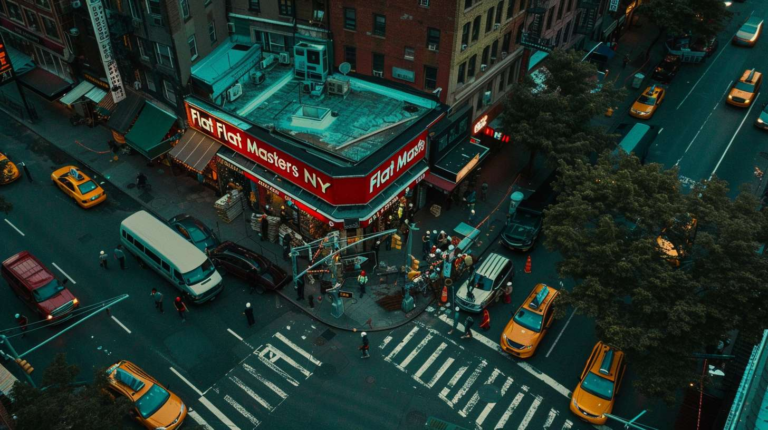Understanding Flat Roof Disadvantages: Your Complete Guide
Look, I've been installing and repairing flat roofs across Queens for over two decades, and I can't tell you how many times homeowners ask me about flat roof disadvantages after they've already got water damage in their living room. So let's be straight about this - flat roofs aren't inherently bad, but they do come with specific challenges that you need to understand before making any decisions.
The biggest issue? Drainage. That's what kills most flat roofs in Queens, especially with our heavy spring rains and winter snow loads.
The Real Problems with Flat Roofs
After installing over 1,200 flat roofs in neighborhoods from Astoria to Jamaica, here's what I see failing most often. Water pooling is the number one killer - and in Queens, with our clay soil and unpredictable weather patterns, this becomes a serious problem fast. Unlike pitched roofs that shed water naturally through gravity, flat roofs rely entirely on proper drainage systems and slight slopes that most contractors get wrong.
Last month on 31st Avenue in Astoria, I had to completely tear off a five-year-old EPDM roof because the original contractor didn't understand proper drainage design. The homeowner thought they were saving money going with the lowest bid. Three leaks and $15,000 later, they learned why experience matters in this business.
Maintenance Requirements Nobody Talks About
Here's what your contractor probably didn't mention: flat roofs need active maintenance every six months. I'm not talking about a quick visual inspection from the ground - I mean actually getting up there with proper equipment to clear drains, check membrane integrity, and address small issues before they become big problems.
The salt air from the East River means we're dealing with accelerated aging on all roofing materials. Metal components corrode faster, membranes become brittle sooner, and drainage systems clog with debris that wouldn't be an issue in other climates. My crew spends probably 40% of our time on maintenance calls that could have been prevented with proper twice-yearly service.
Weather Vulnerabilities in Queens
What does a flat roof not have? Natural weather protection. Pitched roofs shed snow, ice, and debris naturally. Flat roofs? Everything sits there until you deal with it manually.
Our Queens weather patterns create unique challenges. We get heavy spring rains that can dump 3-4 inches in an hour, followed by summer heat that reaches 95+ degrees on the roof surface. Then winter brings freeze-thaw cycles that expand and contract roofing membranes dozens of times per season. I've seen brand new TPO roofs develop stress cracks within two years just from our temperature swings.
Ice dams are another beast entirely on flat roofs.
When water pools and freezes, it creates pressure points that can crack even properly installed membranes. Just this past February, we had emergency calls for three days straight after that ice storm hit Flushing and Corona - most were flat roof failures where ice buildup caused membrane splits.
Limited Material Lifespan
Here's something that bothers me about how other contractors sell flat roofs - they quote the maximum lifespan instead of realistic expectations. Yes, a perfectly installed EPDM roof can last 25 years in ideal conditions. But show me ideal conditions in Queens.
Between the temperature extremes, UV exposure (we get more direct sun on flat surfaces), and our occasional severe weather, I typically see flat roof systems needing major repairs or replacement at 15-18 years. Compare that to a quality asphalt shingle roof that routinely hits 20-25 years with minimal maintenance.
My supplier at Beacon Building Products on Northern Boulevard keeps detailed records of material performance, and the data consistently shows accelerated aging on flat roof membranes in our coastal environment.
Installation Challenges
Why are flat roofs bad when installed incorrectly? Because there's zero margin for error. With a pitched roof, water finds its way down even if installation isn't perfect. Flat roofs require precise slope calculations (minimum 1/4 inch per foot), perfect seam welding, and drainage systems that account for potential settling.
I see botched flat roof installations weekly. Contractors who don't understand proper insulation placement create thermal bridges. Others skip vapor barriers or install them incorrectly, leading to moisture problems within the roof assembly itself. And don't get me started on improper flashing around penetrations - that's probably responsible for 60% of the flat roof leaks I repair.
Cost Reality Check
Are flat roofs bad financially? Here's the honest math. Initial installation might save you $3,000-$5,000 compared to a complex pitched roof replacement. But factor in the required maintenance, shorter lifespan, and higher repair costs, and the total cost of ownership usually exceeds pitched roofing by 20-30% over twenty years.
Emergency flat roof repairs average $1,200-$3,500 in Queens, and they always seem to happen at the worst possible time. Last Christmas Eve, I had a family in Elmhurst with water pouring into their kitchen because their five-year-old modified bitumen roof failed at a seam. Try explaining that repair bill during the holidays.
Energy Efficiency Issues
This might surprise you, but flat roofs can be energy inefficient compared to well-designed pitched roofs with proper ventilation. Without natural air movement under the roof deck, heat builds up and transfers directly into your living space.
I've measured surface temperatures on flat roofs reaching 160+ degrees on July afternoons in Woodside. That heat soaks through even well-insulated roof assemblies. Meanwhile, a pitched roof with ridge ventilation stays 30-40 degrees cooler through natural air circulation.
When Flat Roofs Make Sense
Look, I don't want you thinking I hate flat roofs - I install them regularly and they work well in specific situations. Commercial buildings, additions where height restrictions matter, and modern architectural designs where aesthetics are the priority.
But for most Queens residential applications, you're accepting significant disadvantages for minimal benefits. The key is honest evaluation of your specific situation, local weather patterns, and long-term maintenance commitment.
Questions You Should Ask Your Contractor
If you're considering a flat roof, here's what to ask: What's their specific experience with flat roofing in coastal environments? How do they handle drainage design? What's their maintenance program? And most importantly - can they provide references from Queens customers whose flat roofs are 10+ years old and still performing well?
At Flat Masters NY, we install flat roofs when they're the right solution, but we're upfront about the challenges. Our maintenance programs address the inherent disadvantages through proactive service, but you need to understand what you're signing up for.
The bottom line? Flat roofs aren't necessarily bad, but they require expert installation, regular maintenance, and realistic expectations about performance in our Queens climate. Don't let anyone tell you they're maintenance-free or equivalent to pitched roofing - that's just not true in our environment.


